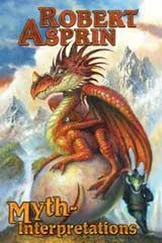Robert Thurston - Intruder
Здесь есть возможность читать онлайн «Robert Thurston - Intruder» весь текст электронной книги совершенно бесплатно (целиком полную версию без сокращений). В некоторых случаях можно слушать аудио, скачать через торрент в формате fb2 и присутствует краткое содержание. Год выпуска: 2003, ISBN: 2003, Издательство: I Books, Жанр: Фантастика и фэнтези, на английском языке. Описание произведения, (предисловие) а так же отзывы посетителей доступны на портале библиотеки ЛибКат.
- Название:Intruder
- Автор:
- Издательство:I Books
- Жанр:
- Год:2003
- ISBN:ISBN: 0-743-44545-7
- Рейтинг книги:4 / 5. Голосов: 1
-
Избранное:Добавить в избранное
- Отзывы:
-
Ваша оценка:
- 80
- 1
- 2
- 3
- 4
- 5
Intruder: краткое содержание, описание и аннотация
Предлагаем к чтению аннотацию, описание, краткое содержание или предисловие (зависит от того, что написал сам автор книги «Intruder»). Если вы не нашли необходимую информацию о книге — напишите в комментариях, мы постараемся отыскать её.
Intruder — читать онлайн бесплатно полную книгу (весь текст) целиком
Ниже представлен текст книги, разбитый по страницам. Система сохранения места последней прочитанной страницы, позволяет с удобством читать онлайн бесплатно книгу «Intruder», без необходимости каждый раз заново искать на чём Вы остановились. Поставьте закладку, и сможете в любой момент перейти на страницу, на которой закончили чтение.
Интервал:
Закладка:
Robert Thurston
Intruder
What Is A Human Being?
Isaac Asimov
It sounds like a simple question. Biologically, a human being is a member of the species Homo sapiens. If we agree that one particular organism (say, a male) is a human being, then any female with which he can breed is also a human being. And any males with whom any of these females can breed are also human beings. This instantly marks up billions of organisms on Earth as human beings.
It may be that there are organisms that are too old to breed, or too young, or too imperfect in one way or another, but who resemble human beings more than they resemble any other species. They, too, are human beings.
We thus end up with something over 5 billion human beings on Earth right now, and perhaps 60 billion who have lived on Earth since Homo sapiens evolved.
That’s simple, isn’t it? From the biological standpoint, we are all human beings, whether we speak English, Turkish, or Japanese; whether we have pale skin or dark; red hair or black; blue eyes or brown; flat noses or beaky ones; and so on.
That, however, is a biological definition, a sophisticated one. Now suppose that you are a member of a primitive tribe, homogeneous in appearance, language and culture, and you suddenly encounter someone who looks superficially like you but has red hair, where you’ve seen only black; fair skin where you’ve seen only dark; and, worst of all, who cannot understand “people language” but makes odd sounds, which he seems to understand, but which clearly make no sense whatever.
Are these strangers human beings in the sense that you yourself are? I’m afraid the consensus would be that they are not. Nor is it entirely a matter of lack of sophistication. The ancient Greeks, who were certainly among the most sophisticated human beings who ever lived, divided all human beings into two groups: Greeks and barbarians.
By barbarians, they didn’t mean people who were uncivilized or bestial. They recognized that some barbarians, like the Egyptians and Babylonians and Persians were highly cultivated. It was just that non-Greeks didn’t speak Greek; they made sounds that made no more sense (to a Greek encountering other languages for the first time) than a silly sound like “bar-bar-bar.”
You might feel that Greeks may have made that division as a matter of convenience, but that they didn’t go so far as to think that barbarians weren’t human.
Oh, didn’t they? Aristotle, one of the most sophisticated of all the ancient Greeks, was quite certain that barbarians were slave-material by nature, while Greeks were free men by nature. Clearly, he felt that there was something sub-human about barbarians.
But they were ancients, however sophisticated they might have been. They had limited experience, knew only a small portion of the world. Nowadays, we have learned so much we don’t come to those foolish conclusions. We know that all human-like creatures are a single species.
Yes? Was it so long ago that most White Americans were quite certain that African Blacks were not human in the sense that they themselves were; that the Blacks were inferior and that to enslave them and let them live on the outskirts of a White society was doing them a great favor? I wouldn’t be surprised if some Americans believe that right now.
It was not so long ago that Germans maintained loudly that Slavs and Jews were sub-human, so that they were right to do their best to rid “true” human beings of such vermin. And I wouldn’t be in the least surprised if there were lots of people right now who harbor similar notions.
Almost everyone thinks of other groups as “inferior,” although often they do not care to say so out loud. They tend to divide humanity into groups of which only a small part (a part which invariably includes themselves) are “true” human beings.
The Bible, of course, teaches universality (at least, in places). Thus, consider one of my own favorite passages in the New Testament, the parable of the “good Samaritan” (Luke 10:25-37). Someone tells Jesus that one of the beliefs one must have if one is to go to Heaven is “to love…thy neighbour as thyself. “ Jesus says he is correct and the man asks, “And who is my neighbour?” (In other words, does he love only his friends and people he likes, or is he supposed to love all sorts of bums and rotters?)
And here comes the parable of the good Samaritan. To put it briefly, a man needs help, and both a Priest and a Levite (professional do-gooders, who are highly esteemed by pious people) ignore the whole matter, but a Samaritan offers a great deal of help.
Now we talk so much about a “good” Samaritan because of this parable, that we think of the Samaritans as all good and are not surprised at the help he offers. However, to the pious Jews of Jesus’ time, Samaritans were heretics, things of evil, objects of hatred-and here we have a despised Samaritan doing good when Priests and Levites do not.
And then Jesus asks, “Which now of these three, thinkest thou, was neighbour unto him that fell among the thieves?” And the man is forced to say, “He that shewed mercy on him.”
This is as much to say that all good people are neighbors even when they are the kind of beneath-contempt individuals as Samaritans are. And it follows, since all human beings have the capacity to be good, all people are neighbors and love should extend to all.
St. Paul says in Galatians 3:28: “There is neither Jew nor Greek; there is neither bond nor free; there is neither male nor female: for ye are all one in Christ Jesus.”
That is a flat statement of universality.
I know that there are many pious people who know these passages and who nevertheless maintain racist views of one sort or another. Such is the desire to be part of a superior group that nothing can wipe out the tendency to picture others as inferior; to divide human beings into a)human, b)semihuman, and c)sub-human, being careful always to put yourself into the first class.
And if we have such trouble in getting human beings to define what a human being is, imagine the problem a robot would have. How does a robot define a human being?
In the old days, when I was first beginning to write my robot stories, John W. Campbell (my editor and mentor) challenged me on several occasions to write a story that hinged on the difficulty of defining a human being. I always backed off. I did not have to try writing such a story to know that it would be a particularly difficult one to write and that I couldn’t do it. At least, not then.
In 1976, however, I finally tackled the job and wrote “The Bicentennial Man. “ It dealt essentially with a robot that became more and more human, without ever being accepted as a human being. He became physically like a human being, mentally like a human being, and yet he never crossed the line. Finally, he did, by crossing the last barrier. He made himself mortal, and as he was dying, he was finally accepted as a human being.
It made a good story (winning both the Hugo and the Nebula) but it didn’t offer a practical way of distinguishing between robot and human being, because a robot couldn’t wait for years to see if a possible human being died and thus proved itself to be a human being.
Suppose you are a robot and you have to decide whether something that looks like a human being is really a human being, and you have to do it reasonably quickly.
If the only robots that exist are primitive, there is no problem. If an object looks like a human being but is made of metal, it is a robot. If it talks in a mechanical kind of voice. moves with awkward jerky motions, and so on and so on, it is a robot.
Читать дальшеИнтервал:
Закладка:
Похожие книги на «Intruder»
Представляем Вашему вниманию похожие книги на «Intruder» списком для выбора. Мы отобрали схожую по названию и смыслу литературу в надежде предоставить читателям больше вариантов отыскать новые, интересные, ещё непрочитанные произведения.
Обсуждение, отзывы о книге «Intruder» и просто собственные мнения читателей. Оставьте ваши комментарии, напишите, что Вы думаете о произведении, его смысле или главных героях. Укажите что конкретно понравилось, а что нет, и почему Вы так считаете.












